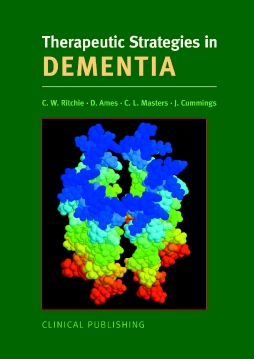
Additional Information
Book Details
Abstract
Widely acknowledged as one of the most challenging aspects of dealing with an ageing population, the increasing prevalence of cognitive decline in the elderly presents the clinician with a variety of complex therapeutic problems. Alzheimer's disease and other dementias vary in their onset and progression, as do patients in their responsiveness to treatment. Social management is as important as the choice of therapeutic agent, and implementing effective and sympathetic treatment requires care and sensitivity as well as a sound knowledge of currently available options. In this important new work, leading experts review the therapeutic agents currently available and assess their effectiveness. Also included is an update on recent and on-going clinical trials, the prospects for new therapeutic targets and the development of new biomarkers that will aid recognition of disease and earlier intervention.
Table of Contents
| Section Title | Page | Action | Price |
|---|---|---|---|
| Figures, tables and boxes | |||
| Acronyms and abbreviations | |||
| Foreword | |||
| Acknowledgements | |||
| Executive summary | |||
| Introduction | |||
| 1Energy for community services | |||
| Health care | |||
| Education | |||
| Public institutions | |||
| Infrastructure services | |||
| Attracting and retaining professionals – the role of energy | |||
| Summary: energy for community services | |||
| 2 A framework for defining and measuring access to energy | |||
| The multi-tier approach to measuring access to energy | |||
| Measuring energy for productive use | |||
| 3 An analysis of commitments to Sustainable | |||
| Energy for All | |||
| 4 The Energy Access Ecosystem Index | |||
| The Energy Access Ecosystem in practice | |||
| Energy Access Ecosystem Index ratings | |||
| 5 Framework for action | |||
| Beyond the International Year of Sustainable Energy for All | |||
| Notes | |||
| References |
